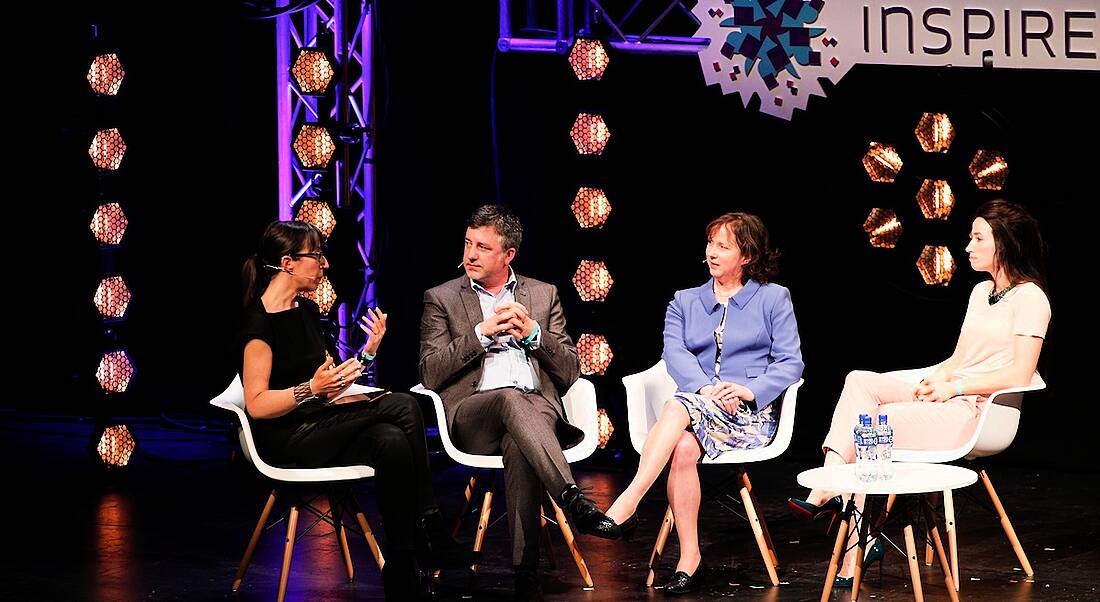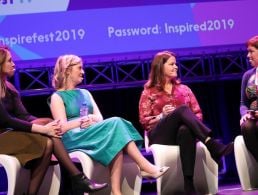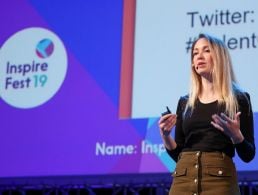What can be done to ensure diversity in the future of STEM teaching? A panel of researchers and educators discussed this at Inspirefest 2017.
Earlier this month, STEM (science, technology, engineering and maths) enthusiasts flocked to the Bord Gáis Energy Theatre for an annual festival that fuses sci-tech seamlessly with the arts: Inspirefest.
On Thursday, 6 July, Silicon Republic CEO and Inspirefest founder Ann O’Dea chaired a panel discussion on the future of STEM pedagogy. She was joined by Dr Arlene O’Neill, founder of Trinity Walton Club; Prof Lisa Looney, executive dean of the Faculty of Engineering and Computing at Dublin City University (DCU); and Peter Brown, interim director of the Irish Research Council (IRC).
Brown kicked off the discussion by focusing on the importance of interdisciplinary research: “We need to ensure that the best people, regardless of gender or race or any other factors, are supported within their disciplines.”
He pointed to the work undertaken by the IRC to attract excellence in research across multiple disciplines, including providing funding for workshops in STEM and the arts, humanities and social sciences (AHSS).
Brown said: “It’s so important that we bring the finest academics, the finest minds, the most talented researchers, men and women, together … so we can solve the very complex problems that we face.
“We need to inspire the next generation to be at the forefront of their fields.”
Sticking with the subject of diversity, O’Neill spoke about two quotas that Trinity Walton Club strives to uphold. The first one is that a 50/50 gender balance is ensured throughout the programme, for both students and PhD researchers; the second is that 15pc of places are reserved for scholarships for DEIS school students, offering opportunities to those from socioeconomically disadvantaged backgrounds.
She outlined the need for role models for young students: “A wise woman once told me, ‘You cannot be what you cannot see’ … and I take that quite literally.”
Adding to the conversation, Prof Looney presented her personal experience of diversity in the field of engineering: “In Ireland, we’ve stalled at about 17pc female in our engineering classes.”
She noted that there are varying numbers when it comes to the different branches of study – for example, there are far more women in biomedical engineering than there are in mechanical engineering, despite the fact that the subject matter in both is 80pc the same.
“Perception is actually a big part of this.”
Looney went on to highlight the importance of getting kids intrigued by STEM subjects when they’re young: “Unless you light that fire of excitement in six-year-olds … you’re not going to have an 18-year-old to attract into the engineering world.”
She added that despite the success of access programmes, such as Access Service at DCU, there is still a pipeline issue: “At one point, somebody came to the university and said, ‘We’d like to offer a scholarship to a female student in engineering who’s come through the access programme’. I couldn’t find one.”
This reiterates Looney’s point that in order to fulfil the numbers required, we need to go even further back and offer children training in subjects such as maths at an early age.
Brown said that in the last Irish Government postgraduate scholarship intake at IRC, there were more women in STEM than men. However, he added that this tends to drop off at a fellowship level: “There is clearly an issue with the pipeline, so we’ve a lot to do nationally and internationally to address that.”
Concluding on a positive note, Looney spoke about the impact that wider diversity – not just gender – is having on the classroom: “The make-up of the new Ireland; the mixture of cultures that we’re beginning to have in Ireland, it’s beginning to show up in the university classrooms.
“We would see high participation rates from first-generation Irish kids whose parents came from Nigeria, the Far East or the Middle East or wherever … where, culturally, engineering is viewed differently to what it might be in traditional Irish families and households – and that’s a very positive thing.”
Inspirefest is Silicon Republic’s international event connecting sci-tech professionals passionate about the future of STEM. Ultra Early Bird Tickets for Inspirefest 2018 will be on sale soon. Sign up here to be the first to know when!




